Disability Activist and Educator, Dr. Wilson, Reflects on her Visit to Kenya
Posted on August 26, 2021
Beliefs, Child, disability, education, Health, International, marginalized, stigma, vulnerable
Dr. Keita Rone Wilson is the kind of person you want to talk with for hours. Although this interview was only 30 minutes long, it depicts many of her important perspectives on effective disability advocacy interventions and the work she saw when visiting our Kenyan field team in 2019. Dr. Wilson is a university professor, disability advocate, and a former speech pathologist, and special educator. We are so honored to have this incredible woman as our Board Secretary and friend. We hope you will also enjoy getting to know her in this article.
How and when did you first get involved with Kupenda?
I met Cindy Bauer [Kupenda’s founder and Executive Director] back in June 2018 at a conference called the Summer Institute on Disability and Theology. Cindy was presenting on her work with Kupenda in terms of reducing stigma of children with disabilities in Kenya. I was so blown away by her presentation, because my background is in special education and my dissertation research was on coping strategies of African American parents of children with disabilities. So we just kind of talked about how people interpret disabilities [and] make meaning out of disability in different ways. So I said I was really interested in the work … especially because she had worked with traditional healers and not many people know this but I also have a background in cultural anthropology.
And just a few months later you visited our office in Kenya – how did that come about?
I was so drawn to the work that Cindy was doing that I actually emailed her and I said ‘hey I’m interested in learning more” … and she sent me to the website and at that time she said they were planning a trip [to Kenya] in that January and they were taking volunteers and she said “You should think about going” and in my crazy mind I’m like, “Sure, I’m going to go!” I had no idea how it was all going to come together but I said, “This is something I really want to be a part of.”
What was the visit to Kenya like?
I was able to work with some teachers and do a training on inclusion and so that was kind of eye opening to me, because … some schools do want to focus on including students with disabilities with general education students but it’s so different … because their classrooms may have 60 students whereas if I’m talking about inclusion in the United States we’re talking a max of 25 kids. But they were really … open and receptive to learning about what are some ways they can include more students in their classes as well as get more parental involvement.
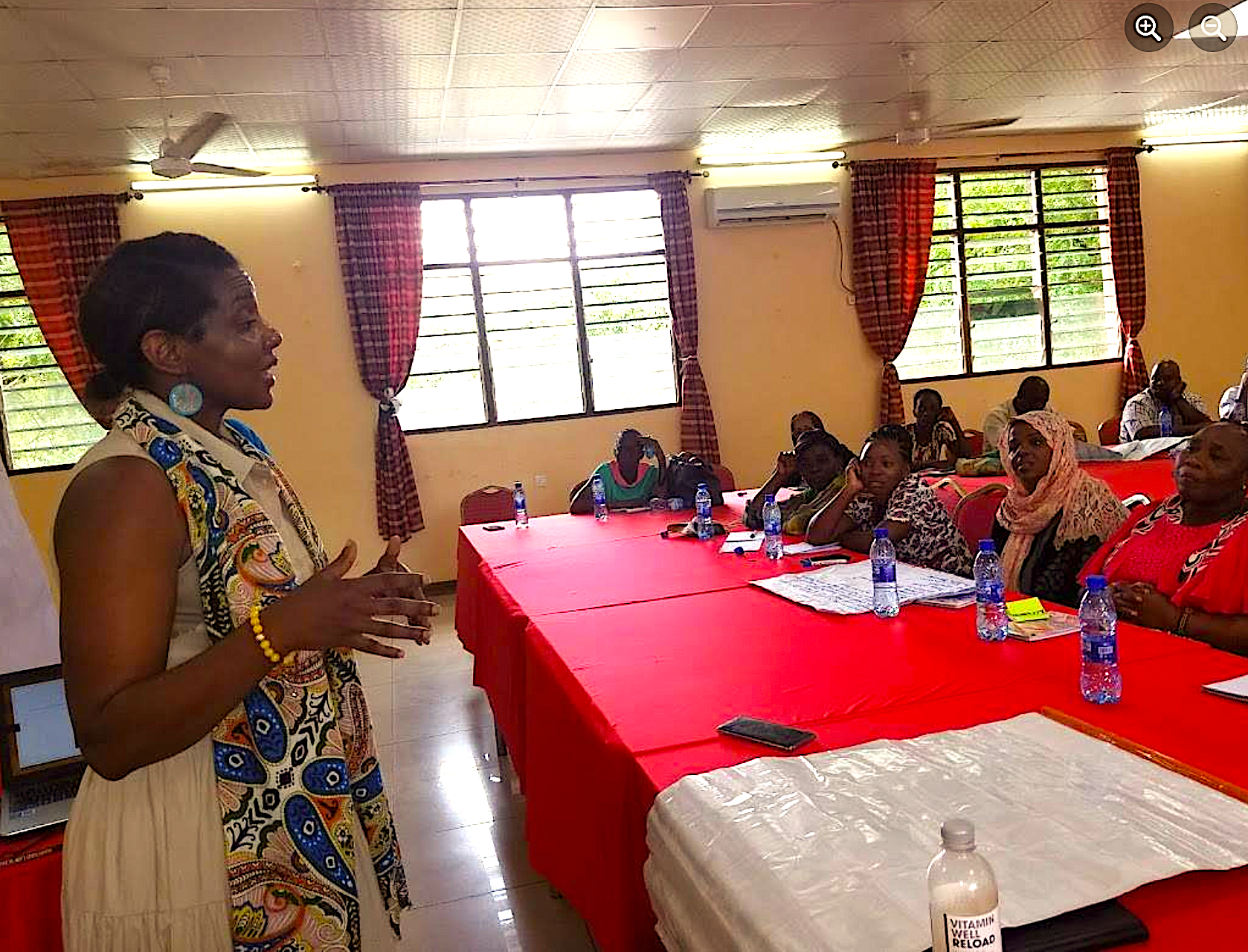
How did the disability work you did in Kenya compare to what you’ve done in the U.S.?
[When] I was working at Children’s Hospital in Michigan in a traumatic brain injury unit … I realized that every parent was having a different experience. Some parents were really confident in their ability to navigate the rehabilitation system, the education system, but I noticed there were a few parents that were really upset like, “Why did this happen to me?” and I remember one mom saying, “This happened to because of the sins that I committed and God is upset”… Her statement really let me know that there was that piece of disability and theology where people were trying to make meaning out of why did this happen … But other parents saw it as this is an opportunity for them to build their spirituality or in some cases come closer to God … So just learning that everybody makes meaning out of disability or negative experiences differently is what drew me into what Cindy was doing when she said, “Hey we have some people in our communities where they think that if you’re born [disabled] we have to kill them … it’s because of a sin or you’re cursed.” So that kind of fascinated me: even in Kenya, even in the United States, everyone is making a meaning out of a disability a different way.
What were your impressions of our Parent Workshop in Kenya?
I was excited that parents were interested and parents showed up, because a lot of times when you have a parent meeting, parents are like ‘I’m not going to that, my child has a disability, I don’t have time to do anything after school or during the day’ and so it was really refreshing to see a lot of parent participation in that particular meeting… I think a lot of times because Kupenda has built a system of trust… that’s why parents show up. It’s no different than the United States: if parents trusts that school, if they trust the administrators, they’re going to show up.
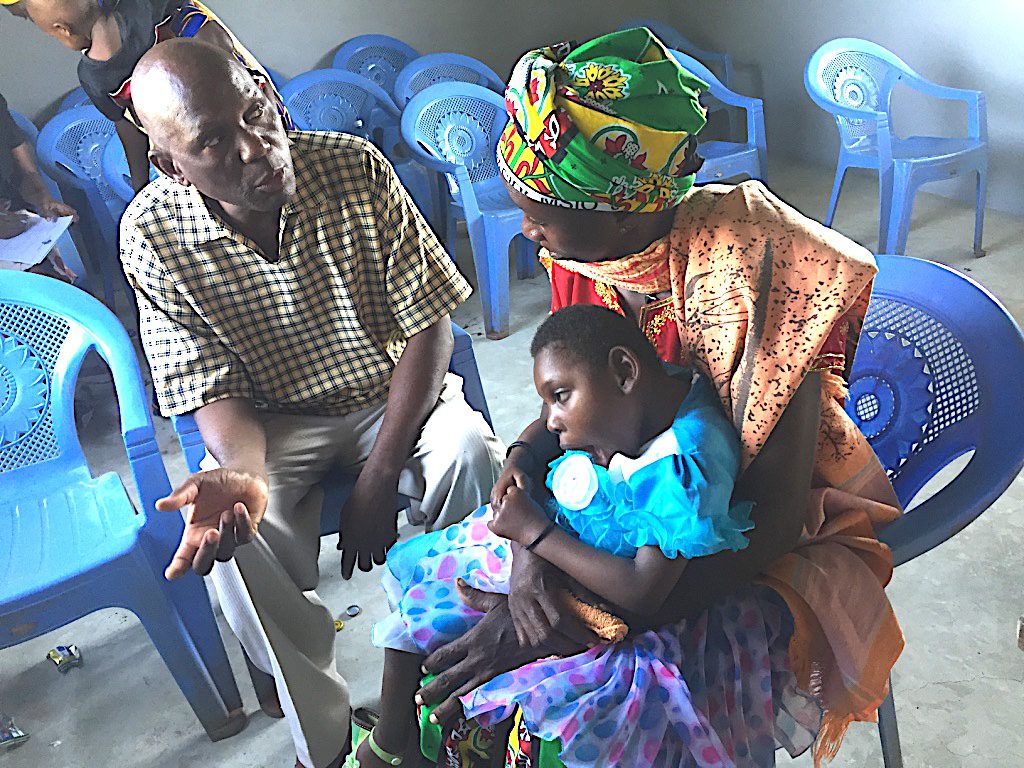
Anything else about your trip that stands out?
I really like the fact that Kupenda approached the traditional healers] understanding that their beliefs were not wrong, but it was more about, “This is the best way to handle this type of disability, this is why this particular disability happens,” and it was never about “Don’t do any of these traditional healing, don’t use any of these traditional medicines or methods.” It was about this is what this disability is and why it happens and here are some strategies that you can learn so that you can work with these families… It was more so about educating so that nothing harmful would happen.
Any other memorable moments from your time in Kenya?
Another thing that blew me away was the church service that I attended … after the service anyone who thought that they knew someone with a disability could come and talk with somebody in Kupenda and we kind of did a referral process. And I remember looking at a woman with a baby who may have been less than a year old and the baby had Down syndrome and I remember … Madame Karo translating what down syndrome is and what its caused by, but it blew me away that the mom had never heard of that. Think about that, you have this baby for almost a year and you don’t know why they physically look different… The mom was almost relieved… [and then learning] that there are some things in place that could help her child you know, learn how to talk more and eat better… It was like an a-ha moment where she realized that it’s not a sin, this is about chromosomes. And I remember Cindy… she didn’t get really technical and too scientific she just kind of explained it in a way that made sense to the mom and so I know that with Madam Karo taking down her information, somebody was going to follow up with her.
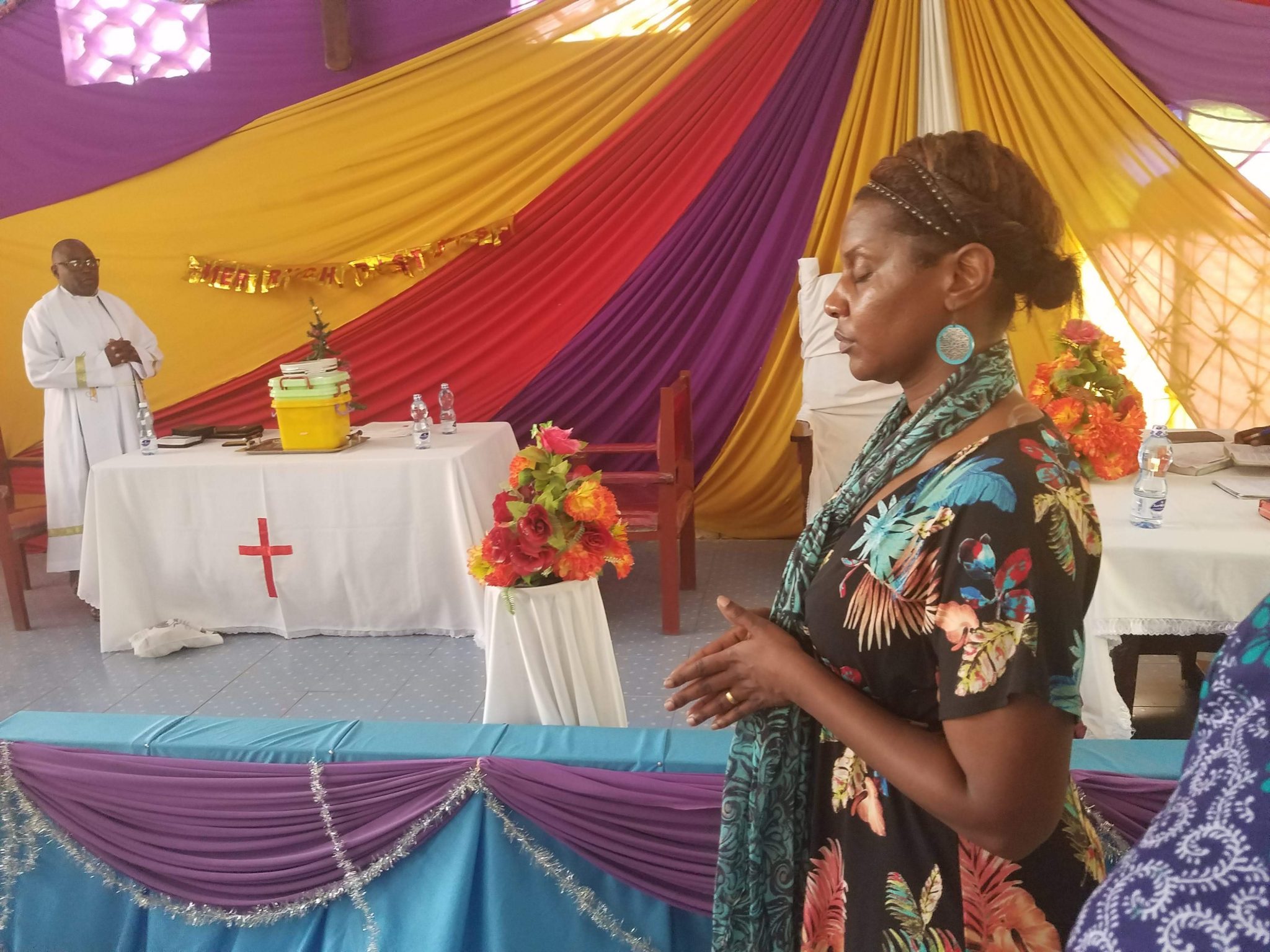
You’ve been involved now for almost 4 years — what inspires you to stay involved with Kupenda?
I will never forget that January walking around with Cindy — we had a binder with different students [information] in it, but to actually go to the school, and I’m looking at a photo with the student’s progress note and I’m looking at that student. So this is not some, send your money we don’t know what’s going to happen, nobody is checking on these children — we were actually going from school to school looking at these children. And so that’s the part that was impressive. There’s so many different organizations out there but just kind of looking at the reporting system [Kupenda has] not only here in the United States but also in Kenya. I remember going to the office in Kenya and just looking at this board that had everything that [the staff was] going to do for that month, who was responsible for what, how many parents they had touched and talked to, how many students they had been in contact with and I’m like, “This is really a solid organization that has all of this down, all of these different datapoints that back up what they do.” … Just having that, it just made everything real. There’s so many nonprofits where you do not actually know what they’re doing and so this organization I can kind of stand by it … It’s not kind of abstract, it’s very real to me.
What do you hope for the future for Kupenda?
I would really like to see some of the work that you do with community leaders and parents… expand to different regions because I think the work is so important… I know some other organizations have borrowed [Kupenda’s] materials, they downloaded it, but I’d love to see this globally I’m a person that thinks really big … because there’s still so many children that aren’t afforded services and/or education because they have a disability.
What would you want someone learning about Kupenda for the first time to know?
If this is somebody from America, I think a lot of times we take things for granted. School is a luxury in the United States … But I think a lot of people underestimate what it means to get a good education and so that’s the part that I like about the work that Kupenda is doing because they’re making sure so many children with disabilities are going to school and learning skills that they can contribute to society I think sometimes it goes over people’s heads that there are children that are not in school, and that there are children who may be abused because they have a disability, and there is no one advocating for them wherever they live. We’re just like, “Oh – if you’re three and you have a disability, you get early childhood services.” There’s no early childhood services … no referral process in some of these countries…. so [people think,] why spend time and energy on this child? So I think that’s the part that I want people to realize, is that we take so many things for granted here, but that there’s so many children and families that need the work that we’re doing, that benefit from the work that we’re doing.
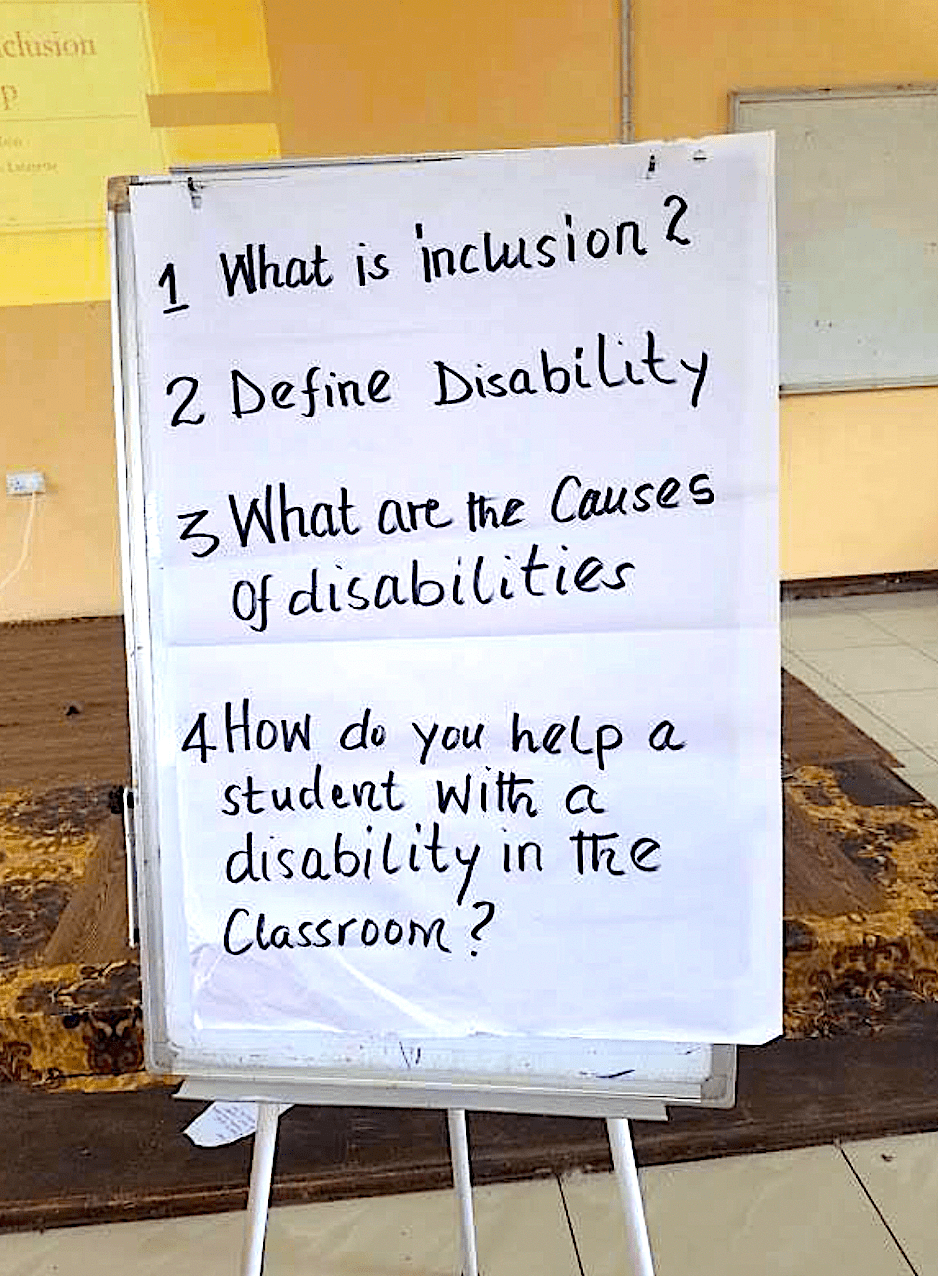
Want to keep updated on Kupenda’s work?
You can follow us on Facebook, Instagram, LinkedIn, and Twitter.
And please also sign up for our monthly newsletter and updates here.
If you’re interested in supporting one of the many children we serve, head over to our sponsorship page to learn about how you can make a difference for just $30 / month.
You can also help children with disabilities stay safe and healthy during COVID-19 by donating here.
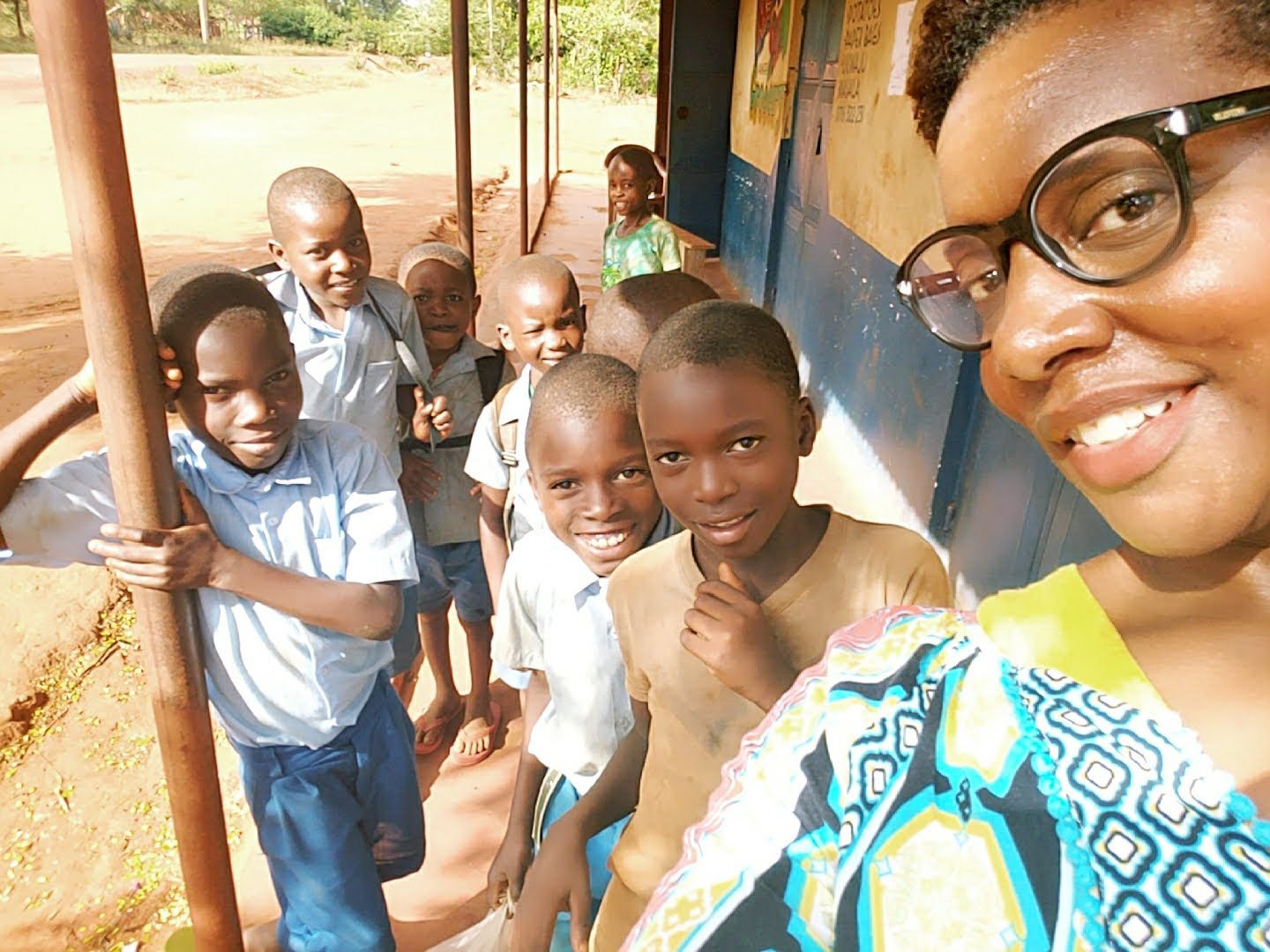
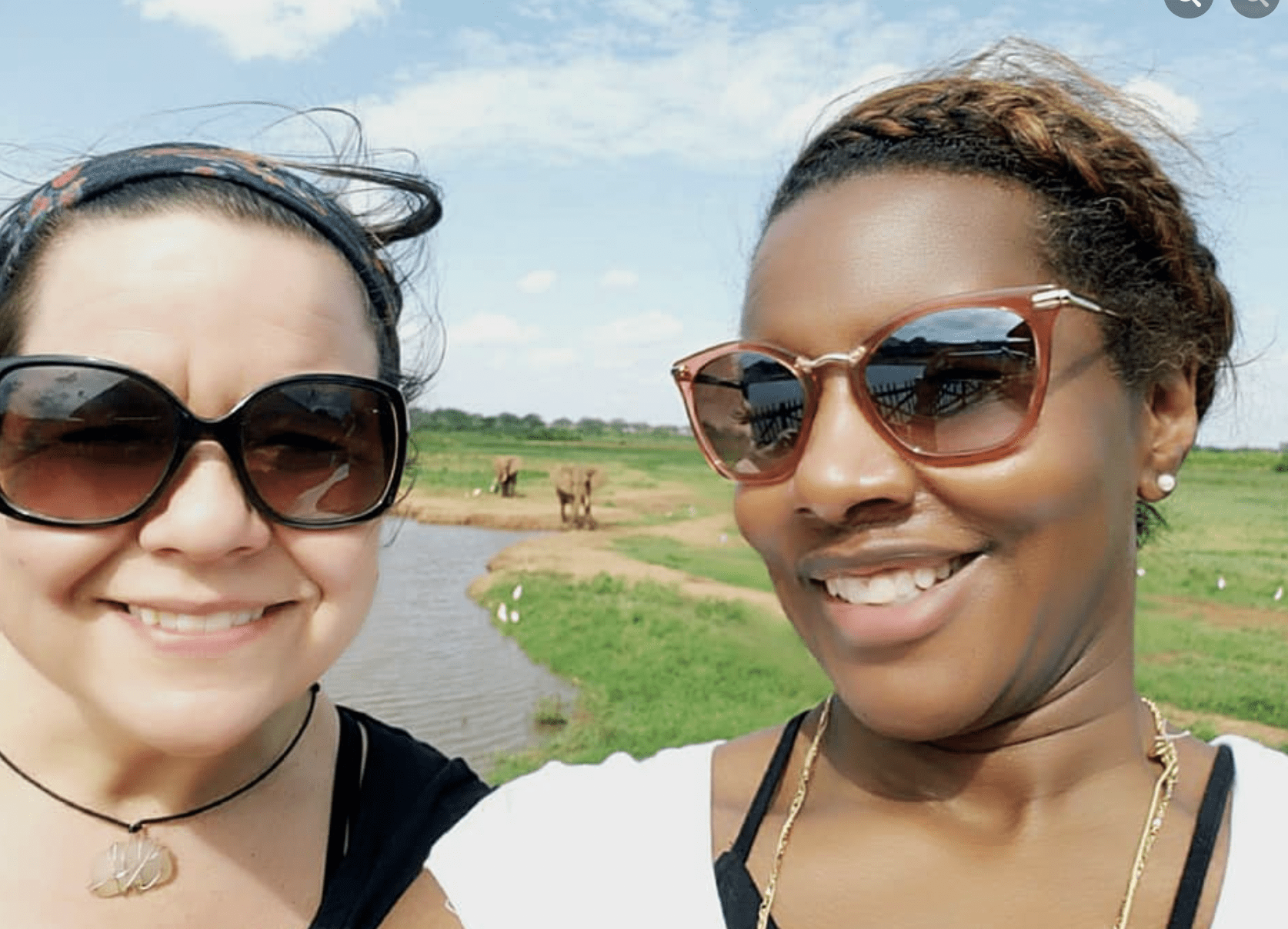



Leave a Reply